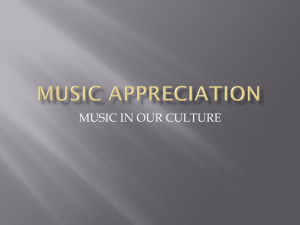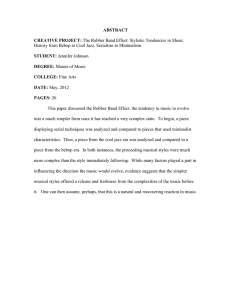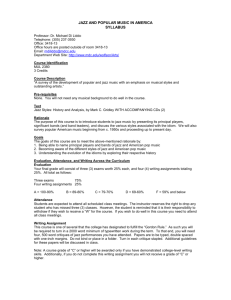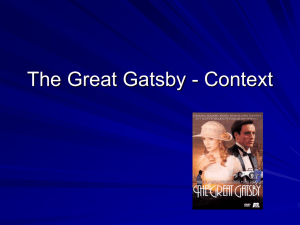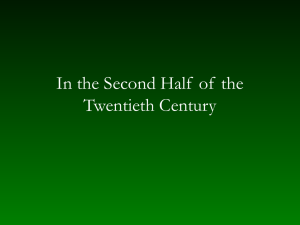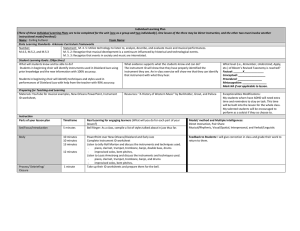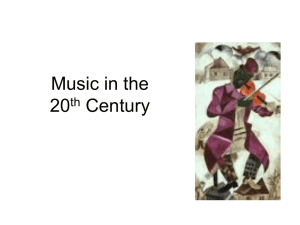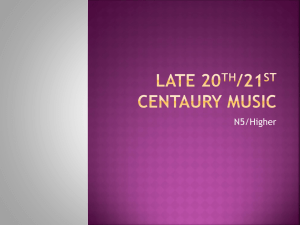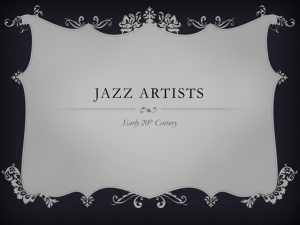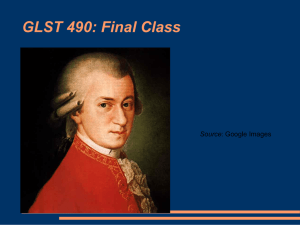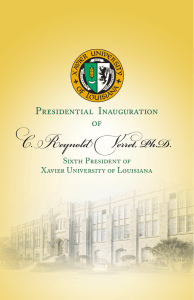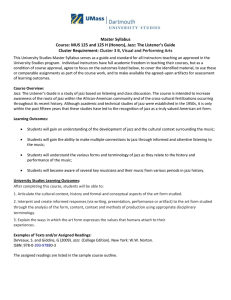Music in our Culture
advertisement
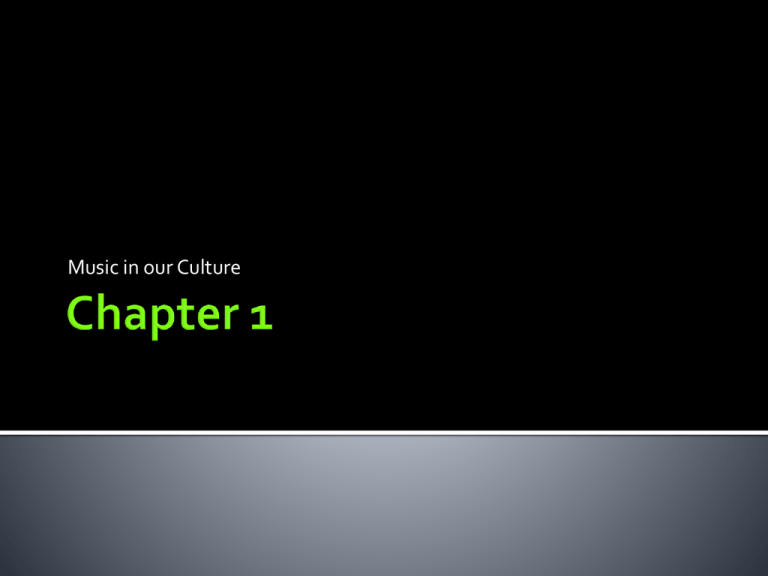
Music in our Culture What is your favorite style of music and what does that say about you? Music has the power to command our attention and inspire us It also reaches deep into our nature to console us, to reassure us, and to help us express who and what we are as human beings Culture- is the customs, ideas, tastes, and beliefs acquired from a person’s background Your culture may be your most personal and important possession Sharing your culture is one of the greatest gifts you can give others Music, perhaps more than any other art form, shows the diversity of the American population. All people, from the earliest recorded history, have created music. It communicates a feeling or conveys a message and speaks to your inner being. 1. How much do you listen to music? 2. Why do you enjoy listening to music? Expresses your personal taste Reveals something about you Helps define who you are Musical preferences often reflect your lifestyle as well Music is highly valued Don’t be limited by one culture or style of music (ex. Food) In order to fully understand and appreciate music, it has to be learned. Music serves: A. Different purposes B. Moods C. Human needs Different types of music have different characteristics and styles. Musical style- refers to the distinct manner or character of musical expression. (comparing) Ex. Model of cars Different styles of music have different vocabulary or descriptors to define them. Styles of music also help document what we are like and who we are as a society. Some style have broad categories that cover a wide range of music. Ex. Pop Music- commercial music that the general public uses for dancing and entertainment. Subcategories: 1. Rock 2. Heavy metal 3. Rap 4. Reggae 5. Top 40 Jazz- popular style of music that developed in America during the late 1800’s and the early 1900’s. Exuberant spirit and often improvised on the spot Most likely started from the rhythmic music played during street parades and funeral processions in New Orleans. Dance music One of the main pioneers of jazz music Was in the band who recorded authentic jazz for the first time European music of the classical period, composed from about 1725-1810 People were searching for a sense of order during this time Homophony- single melody with background music Moods changed freely in these classical pieces Concerto- a composition usually written in 3 lengthy sections featuring 1 or more solos with the orchestra. Became popular for showing off the skills of the individual artist Creole Jazz Band http://www.youtube.com/watch?v=IxEQ28Ll 4FM&feature=player_detailpage#t=14s Modern New Orleans Jazz http://www.youtube.com/watch?v=jCdWvCbl aW8&feature=player_detailpage Mozart http://www.youtube.com/watch?v=BZjuqKBi _HQ&feature=related Franz Joseph Haydn http://www.youtube.com/watch?v=4NFytIZ4 nI4 Before you can judge you need to be certain of what you are hearing and become familiar with the characteristics of that music. Unfamiliar music may need to be played more than once to feel comfortable with it The ability to know musical characteristics and describe them 3 Internal characteristics of music: 1. Means (source of sound) 2. Expression (feeling) 3. Order (organization) 2 External characteristics of music: 1. Origin 2. Use (or function) 1. When and where did Jazz first develop? 2. Why is it possible to distinguish between classical and jazz? 3. In your own words, explain how a person might develop perceptive listening. 4. How do you believe your personal musical taste developed?
